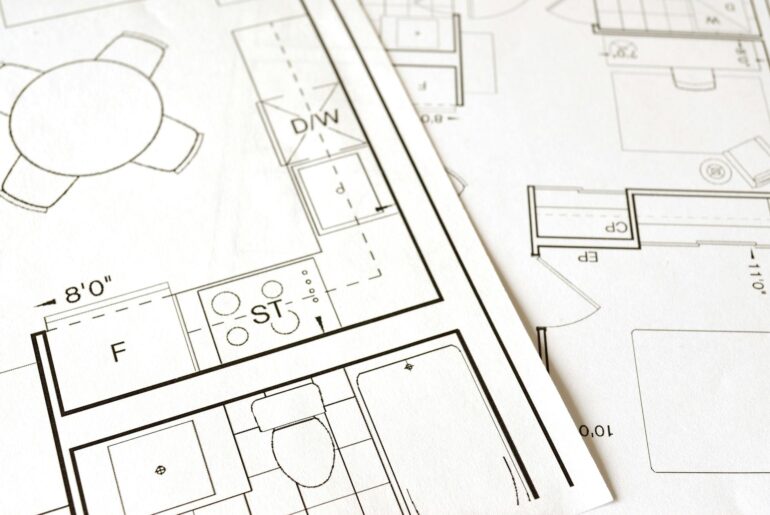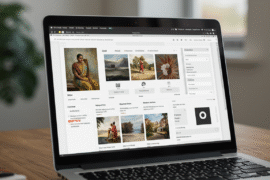This article may contain references to products or services from one or more of our advertisers or partners. We may receive compensation when you click on links to those products or services. Nonetheless, our opinions are our own.
The information presented in this article is accurate to the best of our knowledge at the time of publication. However, information is subject to change, and no guarantees are made about the continued accuracy or completeness of this content after its publication date.
The key to success with a construction budget is all in the planning. How you research and set up your budget will determine whether it succeeds or fails. Every dollar counts on a construction project, and as unexpected events occur, a well-managed budget is a must. Monitoring cash flow, costs, and task-related expenditures requires ongoing attention.
Here is how to keep your construction budget on track.
- Set Clear Goals
- Establish Procedures and Roles
- Avoid Overly Ambitions Deadlines
- No Unplanned Features Mid-Project
- Risk Mitigation
- Research Accurate Cost Estimates
- Tap Into Construction Management Software
- Set Up a Contingency Fund
- Address Overspending Promptly
- Plan for Weather Delays
- Compare Costs from Suppliers
- Prioritize Safety On-Site
- Limit Labor Overtime
- Monitor Incoming And Outgoing Funds
- Maintain Equipment
- Hire Your Best Contractors
- Carefully Inspect Work
- Monitor Your Budget
- Keep in Touch with Project Stakeholder
- Know Where Your Profit Margins Are
- Recommended Reads
Set Clear Goals
Ensure all project stakeholders are aligned with the same goal. In detail, priorities and scope should be laid out for discussion and approval by all.
Establish Procedures and Roles
Create standardized processes for data reporting, spending, and document workflows. Assign specific individuals the task of monitoring specific areas of the budget. Ensure that all management-level stakeholders are aligned with the same budget approach.
Avoid Overly Ambitions Deadlines
Do not set unrealistic deadlines. A rushed timeline will only mean mistakes and more rework, inflating costs. An unreasonable schedule is a rookie mistake that no construction company should make.
No Unplanned Features Mid-Project
Resist the temptation to comply with a client request and add unplanned features mid-project. Any additional features will inflate costs and only hurt your budget.
Risk Mitigation
Identify potential risks. Analyze risk mitigation strategies that can reduce the financial impact of certain situations.
Research Accurate Cost Estimates
Ensure you base your budget on the most accurate cost estimates you can produce. A construction budget is not where you want to employ guesswork.
Your direct expenses to plan for include all costs that directly impact construction, including labour, materials, and equipment-related maintenance or rentals. These costs are associated with supporting the construction project, including permits, insurance, and site security.
Tap Into Construction Management Software
Construction management software can streamline how you oversee and alter your construction budget. Track spending, monitor progress, and automate reports. See how your present budget strategy is working.
Set Up a Contingency Fund
A contingency fund on a construction project should retain 10-15% of your total budget. This money is freed up when there are unexpected expenses and is your safety net to keep the project on track.
Address Overspending Promptly
With real-time expense tracking in construction software, it’s easier to spot where there is overspending. Another way to do this is to review expense reports. As you spot them, address issues with no delay.
Plan for Weather Delays
Seasonal factors are key in how much work your team can get done on any given day. Weather-related delays can lead to budget overruns if you haven’t previously set aside time in the schedule.
Compare Costs from Suppliers
When procuring materials and labour, compare costs from multiple suppliers to secure the most competitive pricing. Refer to market trends to anticipate price fluctuations. This may free up more of your budget, which can be re-dedicated elsewhere.
Prioritize Safety On-Site
Safety incidents and accidents increase costs on-site, elevate insurance premiums, and delay timelines. To minimize the risks involved, ensure strict adherence to safety protocols and, when necessary, provide safety training to workers.
Limit Labor Overtime
Excessive overtime increases labour costs significantly. Always schedule shifts that properly balance the workload. Check worker productivity to ensure teams remain on track during their scheduled hours.
Monitor Incoming And Outgoing Funds
Take a practical approach to ensuring incoming funds are perfectly balanced with a project’s expenditures. This may involve using certain strategies to keep incoming funds arriving on time and supporting your company to cover the outflow of expenditures.
Maintain Equipment
Set up each piece of heavy equipment for regular maintenance to avoid the risk of equipment failure disrupting the construction schedule. Ensure you follow through with this to get optimal performance from your fleet.
Hire Your Best Contractors
Contractors for a construction project should be carefully selected. Commercial construction companies understand that high-quality work reduces rework and repair costs. Vet contractors based on skills, experience, and reliability. Consider incentivizing quality with performance-based clauses in your contracts.
Carefully Inspect Work
Conduct site inspections. Ensure the work quality meets the expected standard. When it doesn’t and/or there’s been poor artistry, repairs must be made and the work redone. Address such issues immediately.
Monitor Your Budget
When you monitor your budget, unforeseen events likely cause a reallocation of funds at some point. Be flexible and ready to adapt to your budget.
Keep in Touch with Project Stakeholder
Maintain financial transparency at every phase. Update project stakeholders when significant changes need to be made to your budget. In some cases, you may want to get their approval on certain decisions.
Know Where Your Profit Margins Are
Calculate profit. Ensure your profit margin is in your mind as you manage your budget.

Reviewed and edited by Albert Fang.
See a typo or want to suggest an edit/revision to the content? Use the contact us form to provide feedback.
At FangWallet, we value editorial integrity and open collaboration in curating quality content for readers to enjoy. Much appreciated for the assist.
Did you like our article and find it insightful? We encourage sharing the article link with family and friends to benefit as well - better yet, sharing on social media. Thank you for the support! 🍉
Article Title: How to Keep Your Construction Budget On Track
https://fangwallet.com/2025/02/10/how-to-keep-your-construction-budget-on-track/The FangWallet Promise
FangWallet is an editorially independent resource - founded on breaking down challenging financial concepts for anyone to understand since 2014. While we adhere to editorial integrity, note that this post may contain references to products from our partners.
The FangWallet promise is always to have your best interest in mind and be transparent and honest about the financial picture.
Become an Insider

Subscribe to get a free daily budget planner printable to help get your money on track!
Make passive money the right way. No spam.
Editorial Disclaimer: The editorial content on this page is not provided by any of the companies mentioned. The opinions expressed here are the author's alone.
The content of this website is for informational purposes only and does not represent investment advice, or an offer or solicitation to buy or sell any security, investment, or product. Investors are encouraged to do their own due diligence, and, if necessary, consult professional advising before making any investment decisions. Investing involves a high degree of risk, and financial losses may occur including the potential loss of principal.
Source Citation References:
+ Inspo












































